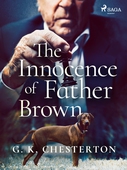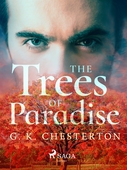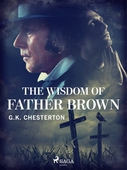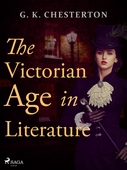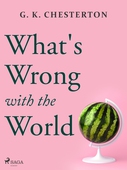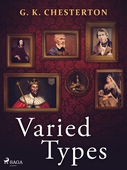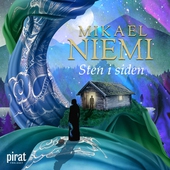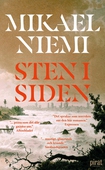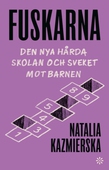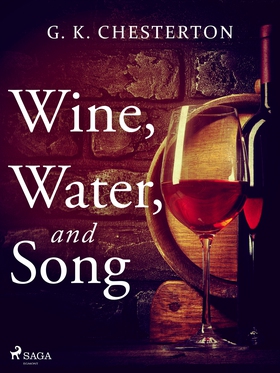
Lägg till önskelistan
Wine, Water, and Song e-bok
Pris
45 kr
A light-hearted collection of poems featuring G. K. Chesterton’s classic wit and cheer, ‘Wine, Water, and Song’ celebrates drink in all its forms, lampooning ideas of prohibition that were on the rise in 20th century London.
Chesterton makes a merry satire of local politics and English traditions, with poems including ‘Wine and Water’, where he imagines a wine cellar aboard Noah’s Ark, and ‘The Logical Vegetarian’, where he sings the virtues of a liquid diet.
For fans of Chesterton and po...
E-Bok
45 kr
Pris
Förlag
Saga Egmont
Utgiven
13 December 2022
Längd
100 sidor
Genrer
Romaner, Skönlitteratur
Språk
English
Format
epub
Kopieringsskydd
Vattenmärkt
ISBN
9788726992656
A light-hearted collection of poems featuring G. K. Chesterton’s classic wit and cheer, ‘Wine, Water, and Song’ celebrates drink in all its forms, lampooning ideas of prohibition that were on the rise in 20th century London.
Chesterton makes a merry satire of local politics and English traditions, with poems including ‘Wine and Water’, where he imagines a wine cellar aboard Noah’s Ark, and ‘The Logical Vegetarian’, where he sings the virtues of a liquid diet.
For fans of Chesterton and poetry that provokes, this book is a perfect collection of clever rhymes and outspoken English humour.
Gilbert Keith Chesterton (1874 – 1936) was an English writer, journalist, philosopher, and literary critic. An unparalleled essayist, he produced over four thousand essays during his lifetime, alongside eighty novels and two hundred short stories.
Tackling topics of politics, history, philosophy, and theology with tenacious wit and humour, G. K. Chesterton was often considered a master of the paradox. Himself both a modernist and devout Catholic, he is remembered best for his priest-detective short stories ‘Father Brown’, and his metaphysical thriller ‘The Man Who Was Thursday’.
In his lifetime, Chesterton befriended and debated some of the greatest thinkers of the age, such as George Bernard Shore, H. G. Wells, and Bertrand Russell, while his works went on to inspire figures including T. S. Eliot, Michael Collins, and Mahatma Gandhi.

